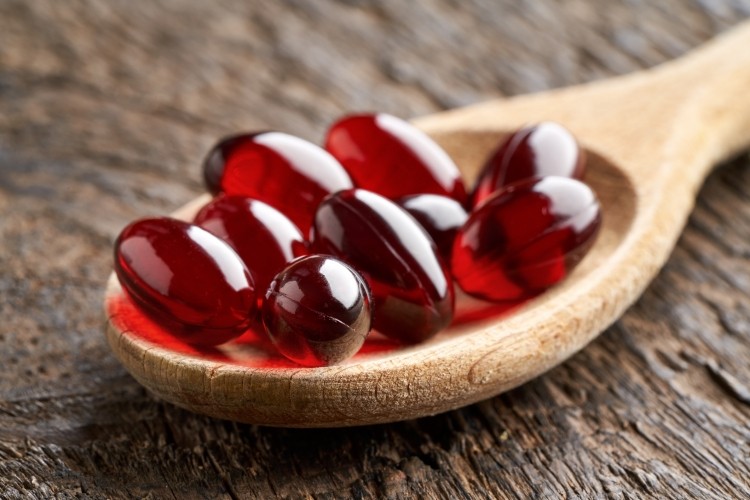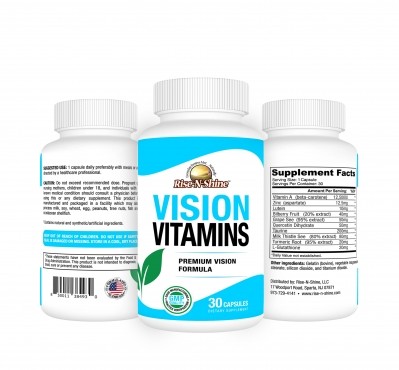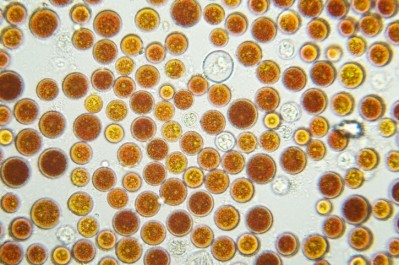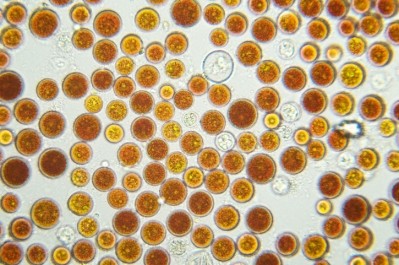Astaxanthin supplements may reduce visual stress from screens: RCT

Modern work increasingly involves extended periods of looking at electronic displays, known in work jargon as visual display terminals (VDT). All of this screen time is causing detrimental effects on eye health, including eye fatigue, hyperemia, pain, and more. The situation is compounded by the near ubiquitous use of smartphones.
Data from the new double-blind, placebo-controlled study, published in the Journal of Clinical Biochemistry and Nutrition, indicated that the astaxanthin supplementation at 9 milligrams per day for six weeks may support eye health by reducing oxidative stress that is caused by VDT work.
Astaxanthin supplementation was also associated with an improvement in visual acuity, compared to placebo. Visual acuity is defined as “a measure of the ability of the eye to distinguish shapes and the details of objects at a given distance”.
“VDT work can cause visual burden,” wrote the researchers from BGG in Japan and China. “In other words, comparison of visual acuity between the pre- and post-VDT work at 6 weeks after astaxanthin intake showed lower visual acuity after VDT work compared with that before VDT work in both groups. However, the results showed that astaxanthin prevented the reduction in VDT-work related visual acuity.
AstaZine
The powerful antioxidant is sourced from the microalga Haematococcus pluvialis. It has been studied for its antioxidant, anti-inflammatory, eye health benefits, cardioprotective properties, immune system modulatory activity and neuroprotective activities.
The new study used BGG’s AstaZine astaxanthin, and the company funded the study.
Commenting on the study's results, Shaheen Majeed, CEO of BGG Americas / Algae Health Sciences, told us: "This is the second publication for visual health which used AstaZine. The previous study was done with the formula containing MyrtiPRO, AstaZine and lutein. The two studies can be referenced by brands or formulators during their product development related to eye health. As you know, eye problems caused by prolonged use of screens are a predominant health issue for all age groups, and the age trend is getting younger."
Study details
Sixty people aged between 20 and 64 who regularly performed VDT work and with a high risk of eye fatigue were recruited to participate in the study. Volunteers were randomly assigned to receive either the astaxanthin supplements or placebo for six weeks and were subjected to tests for visual acuity, functional visual acuity, and pupil constriction rate before and after VDT work at the start and end of the study.
The data indicated that, for people over 40, astaxanthin supplementation was associated with a protective effect for visual acuity of the dominant eye after VDT work compared to placebo group, suggesting that astaxanthin reduces the oxidative stress caused by such work.
Commenting on the potential mechanism(s) of action, the researchers postulated that this was linked to the carotenoid’s antioxidant activity.
“Astaxanthin has been reported to have antioxidant effects and has been shown to cross the blood-brain barrier, suggesting its involvement in the mechanism,” they stated. “This suggests that the antioxidant capacity of astaxanthin reduced brain ROS [reactive oxygen species] from stress induced by VDT work, leading to reduced blood ROS, resulting in reduced tension of the ciliary muscle.”
The ciliary muscle is a muscle inside the eye that changes the shape of the lens and enables the eye to focus.
“The gradual progression of hyperopia [farsightedness], which is known as presbyopia, begins in the 40s. This is due to age-related reduction in the regulation of ciliary muscle,” wrote the researchers. “Prolonged near work, such as VDT work, is a significant burden on vision (eg focusing ability). This may explain the positive effects of astaxanthin as shown in the stratified analysis of participants aged 40 years and older.”
Source: Journal of Clinical Biochemistry and Nutrition
2023, Volume 72 Issue 1 Pages 74-81, doi: 10.3164/jcbn.22-65
“Effects of diet containing astaxanthin on visual function in healthy individuals: a randomized, double-blind, placebo-controlled, parallel study”
Authors: T. Sekikawa et al.















